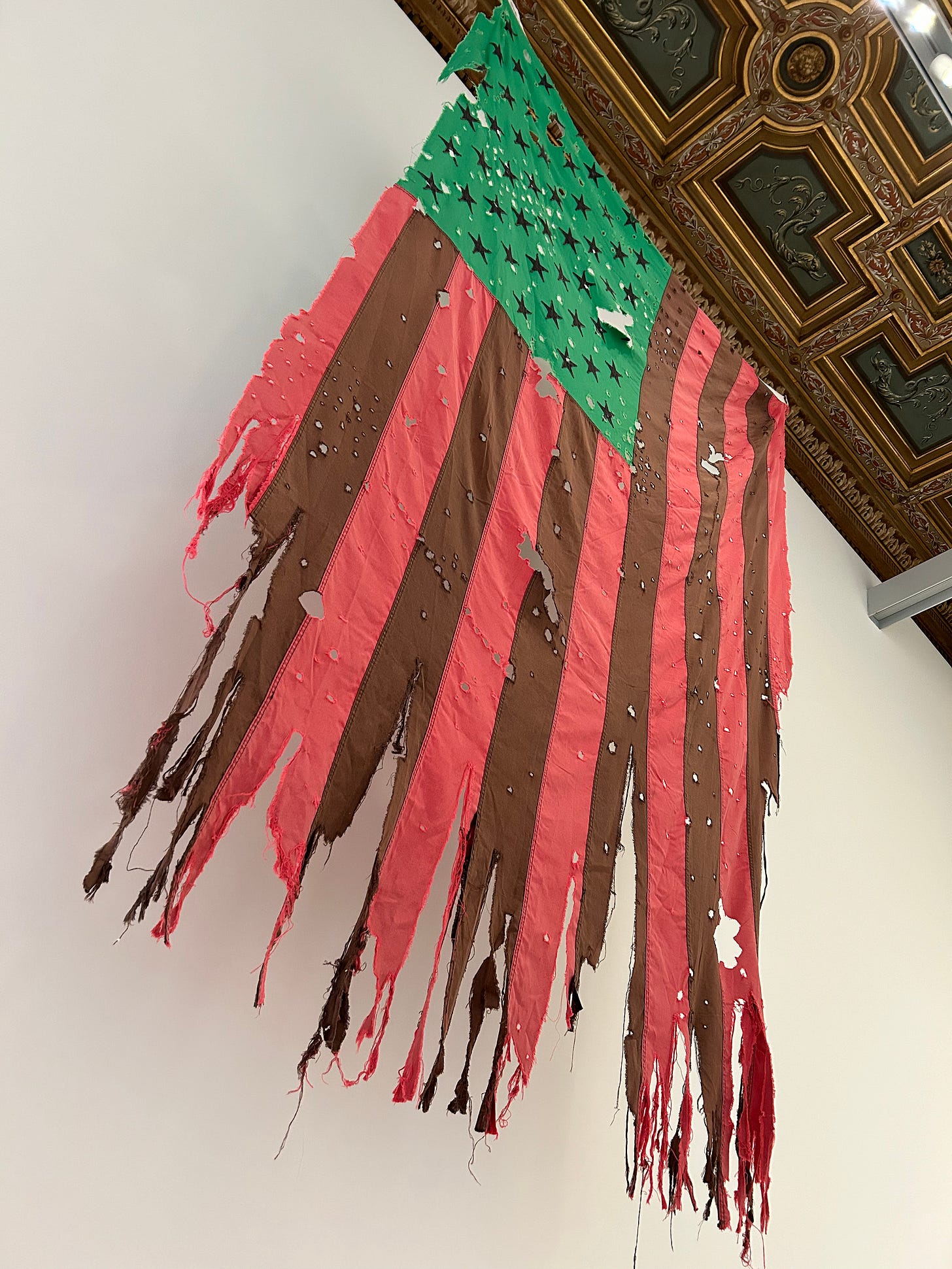How we live now
What the beginnings of authoritarianism feel like.
I was trying to remember a dream. I’d only been asleep for an hour but it was already gone. My dreams are constant and often lucid. They’re stress dreams, usually. They tend to involve me trying to get somewhere or complete a task but I keep getting blocked from doing so by something beyond my control — the computer won’t work, I can’t find the place I’m looking for, I can’t get a ride to where I need to go. Anyway, I was trying to remember one of those dreams after an hour of sleep on a seven-hour flight back into the country and couldn’t. Everyone around me was watching the little screens on the back of the seats in front of them. Hundreds of movies and TV shows available to pass the time. I don’t know what the dream was but in that moment it seemed like I was still in it, watching all these people doing their watching, their consuming.
We live in the age of consumption, I thought. Constantly consuming; never absorbing. Never really learning. Maybe even never actually thinking.
Finding time to sit quietly and actually think feels like a luxury now, and I know it’s not just me who feels that way. A guy I play hockey with who runs a small contracting business posted the other day that all he wants to do is create art but he can’t because he doesn’t have the time, because he has to work to make a living. Imagine if we all could just do what we wanted, instead of what we feel we have to do. A flattening of creativity seems to have permeated American life, and I can’t figure out what it means. Even art — the thing created by creatives, like music and film and TV — feels, for the most part, like it’s part of the consumption complex. We’re consuming things that were created simply for us to consume them, I think sometimes.
I also think that, faced with what truly does seem like rising authoritarianism, what is the redeeming value of all this material we consume? The last time this country went through such a revolutionary change in the fundamental values of American life — the 1960s — art, music and film were awash in messages and challenging questions that met the seriousness of that historical moment. Now? Superhero movies, popular music that as far as I can tell has about zero depth, constant culture wars. I’m sure there’s great art out there that speaks to the importance of our time, but it’s not something that’s accessible to the average person. It’s not coming across the AM radio like it did in 1966 when Buffalo Springfield’s “For What It’s Worth” was released, or in 1971, when Marvin Gaye’s “What’s Going On” beamed across the airwaves.
What does all this mean? I think it’s that this is the beginning of what it feels like to live under authoritarianism, and it is exhibiting itself in two ways. First, many of us are exhausted with having to know about what Donald Trump says and does every day, what the status of his many criminal trials is, what the latest vile thing he’s said about immigrants is, not to mention the authoritarian tactics that his fellow Republicans are carrying out in his name, things like restrictive voting laws, trying to make all abortions illegal, attacking trans people, banning books, and on and on. We’re exhausted not just because we already lived through this madness for four years but because this time it seems worse, somehow. Now that Trump and his allies realize that they can’t always win at the ballot box, they’ve adopted an even more aggressive play at minority rule: they don’t care if the things they want aren’t wanted by a majority of the country. They’re going to do them anyway.
I heard people talking a few weeks back — both from different countries — and they were saying how they just wanted to live in a place where they didn’t need to know or care about what its leaders were saying and doing all the time. They were talking about Trump and Putin. That seems like a luxury now, too — being able to just live your life and not worry that someone who should have no power over what you do each day is going to say or do something that takes your own power away from you. Even having to worry that that could be the case — because judges rule a certain way, because lawmakers pass certain laws in certain states, or because someone is elected to office — feels like it’s already taking something from us. Having to know what someone says or does almost every day just because they’re in power feels like someone has authority over me that I never asked for or wanted, which I’m pretty sure is the definition of authoritarianism. Much has been written about the many people who believed and still believe that something like this couldn’t happen here, that Americans grasp far too lovingly to their individualistic sense of freedom to allow some person to have that much control over their lives, but the fact remains that many of us already feel that something has been taken from simply because we have to know all the time what our leaders are saying and doing. Perhaps even more of us have decided that the act of knowing is too much, too stressful. And so, the second part of what I think is the beginning of living under authoritarianism is that, exhausted as we all are, we turn to our comforting consumption to get away from it all.
Keep reading with a 7-day free trial
Subscribe to American Doom to keep reading this post and get 7 days of free access to the full post archives.



